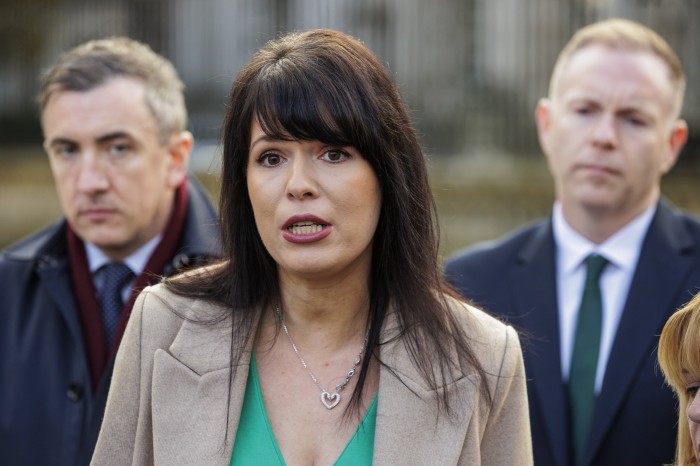
Unlock the Editor’s Digest for free
Roula Khalaf, Editor of the FT, selects her favourite stories in this weekly newsletter.
Northern Ireland’s High Court has dealt a fresh blow to a new body set up to investigate Troubles-era atrocities by finding the government’s ability to veto sensitive information breached international human rights law.
The ruling on Friday dents the Labour government’s plans to retain the Independent Commission for Reconciliation and Information Recovery, which was set up under the previous Conservative administration’s contentious Legacy Act.
“Its [the ICRIR’s] credibility is shot to pieces,” said Daniel Holder, head of the Committee for the Administration of Justice, an independent human rights organisation.
The Act scrapped inquests and civil proceedings into killings and created the ICRIR, which is led by Sir Declan Morgan, to take over investigations instead.
The new Labour government vowed to repeal and replace parts of the Act that have also been challenged in court and to reinstate inquests and civil suits. But it vowed to keep a strengthened ICRIR in place.
“I am pleased the court has rightly ruled the disclosure arrangements are incompatible with the European Convention on Human Rights. It is the right and just decision,” said Sorcha Eastwood, an MP for Northern Ireland’s Alliance Party.
The court also found that the disclosure powers risked undermining public confidence in the ICRIR.
The High Court had already ruled in February that proposed immunity provisions under the Legacy Act breached the European Convention on Human Rights. The UK government has said it will repeal and replace those and restore inquests and civil proceedings that the Act halted.
KRW Law, a Belfast-based practice, said the court found “significant failings” with how the ICRIR could operate and that the UK government’s decisions on disclosure could be taken “often without reason and with no provision for a merits-based appeal”.
It criticised provisions that would give the UK’s Northern Ireland secretary discretion over information to be released to the body and, crucially, to amend the ICRIR’s findings by removing any national security references, Holder said.
“In all of [the ICRIR’s] reviews or investigations, the secretary of state has the power to rewrite their reports by removing any information that relates to national security,” he said.
“Let’s be blunt about it: this is designed to cover up human rights violations by state agents,” Holder added.

Gráinne Teggart, Northern Ireland deputy director at rights group Amnesty International, said the ruling was “really, really important” for victims.
“The court has spoken loud and clear,” she said. “Core parts of the ICRIR are not human-rights compliant. We warned that this body would not be able to deliver for victims . . . The ICRIR must go.”
Hilary Benn, Northern Ireland secretary, has consulted with victims’ groups and has promised their views will be central to the government’s approach to dealing with the difficult legacy of the conflict, which lasted from the last 1960s to 1998.
But he has defended his decision to retain the ICRIR, saying it would waste precious time in investigations into crimes committed decades ago if the ICRIR were scrapped.
Instead, he has promised to strengthen the body. Morgan, a respected former Lord Chief Justice of Northern Ireland, said he “would welcome additional steps” by Benn “to address the issues identified by the court”.
“I welcome the fact that the appeal court . . . has agreed with the trial judge that the commission is independent,” he added.
A government spokesperson said it was “committed to addressing the legacy of the past in a way that can obtain the support of victims and survivors, and comply with our human rights obligations”.
“We note the court’s ruling and will take the necessary time to consider our next steps on this complex judgment,” they added.
Many victims have shunned the ICRIR, but the body said this month it had received 85 enquiries about investigations and had accepted eight cases. The first is an inquiry into the 1974 Guildford Pub bombings.
Benn has drawn criticism in recent days for authorising a long-promised public inquiry into the 1989 murder of human rights lawyer Pat Finucane by loyalist paramilitaries, but turning down requests by other families.
Eastwood said the ruling on Friday “should give new urgency to the UK government to repeal and replace the toxic Legacy Act”.